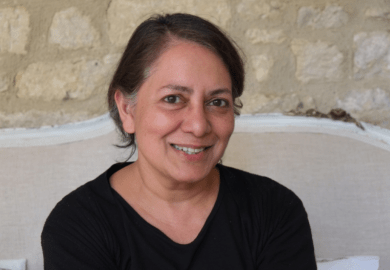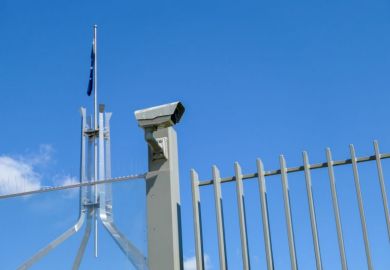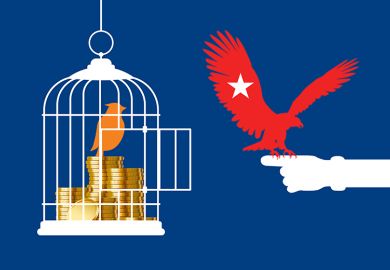Scientists will be misrepresented until society understands their unique embrace of uncertainty, according to an academic cast as an architect of unpopular Covid-19 measures.
Dirk Brockmann, a physicist at the Humboldt University of Berlin, was among three academics and an academic-turned-politician named in an article in the newspaper Bild earlier this month. The article, topped with his photo, described the academics as an “expert trio for tougher measures”.
The article was condemned in a statement by the Alliance of Science Organisations, which represents the German Academic Exchange Service, the German Research Foundation, the German Rectors’ Conference and the Leopoldina National Academy of Sciences, among others.
The alliance claimed Bild’s “one-sided reporting” was “defamatory” and could lead to scientists “being exposed to physical or psychological violence or being threatened with it”, adding that “such forms of discussion are in no way acceptable and contradict the basic rules of a free and open society and the basic principles of our democracy”.
“Especially in crisis situations and in an already emotionalised topic area, objectivity in discussion and reporting is required in a special way and is far more productive,” the alliance said.
“For some time now…scientists in Germany, especially when focusing on Covid-19 pandemic issues, have been presented in parts of the media in a negative way,” said Christiane Kling-Mathey, a spokeswoman for the Science Council, which currently leads the alliance, adding that the Bild article “was the last straw that broke the camel’s back”.
She referred to earlier media attacks against Christian Drosten, a virologist at the Charité University of Medicine in Berlin, who has faced death threats after becoming a pandemic public health figurehead.
A spokesman for Axel Springer, the publisher of Bild, said the newspaper took the alliance’s criticisms “seriously” and that a subsequent Bild article had reported the concerns raised in the alliance statement. “Criticism of scientists and their proposals must be possible in a free and open society and are basic principles of our democracy, but always appropriately exercised,” he said.
“It’s very hard to pinpoint whose fault is this,” Professor Brockmann told Times Higher Education. “Social scientists need to communicate to society better, [and] put more effort into communication, because we’re publicly funded. I’m a public servant, in a sense, so it’s my responsibility to teach the stuff that I do.”
“What we see is a symptom of something that runs very deep,” he said, referring to the article and its implied attribution of political decisions to scientific advisers. “It’s also a misunderstanding in society that science has the answers. Science is the only thing that may not have answers. Politics and religion have answers to everything, but many of them are false.”
Register to continue
Why register?
- Registration is free and only takes a moment
- Once registered, you can read 3 articles a month
- Sign up for our newsletter
Subscribe
Or subscribe for unlimited access to:
- Unlimited access to news, views, insights & reviews
- Digital editions
- Digital access to THE’s university and college rankings analysis
Already registered or a current subscriber?









